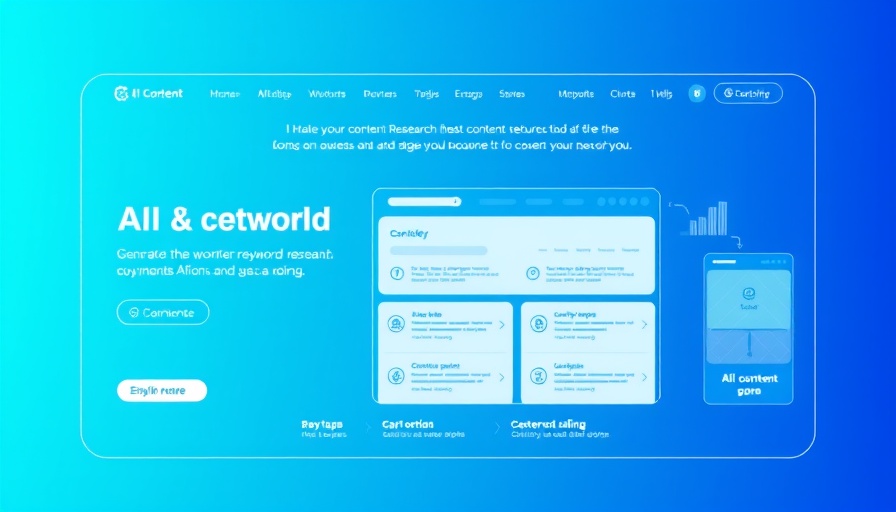
Why Business and Marketing Graduates Must Embrace AI
The landscape of education is currently witnessing seismic shifts, especially in fields essential to modern economy, such as business and marketing. The advent of artificial intelligence (AI) is not simply a trend; it is an overwhelming force reshaping the marketplace and educational requirements. As a business owner, I've grown increasingly concerned by the apparent disconnect between university curricula and the immediate demands of the workforce. Simply put, graduates who lack proficiency in AI tools will find themselves at a severe disadvantage.
The Cautionary Tale of Traditional Industries
Historically, industries like newspapers were slow to adapt, clinging to legacy systems that ultimately led to their downfall. As marketing professionals, we're reminded of how those who resisted digital transformation faced dire consequences. Just as newspapers watched their audiences migrate online, businesses that don’t leverage AI tools risk falling behind agile competitors who quickly adapt to changing conditions.
The Tremendous Value of AI Skills in Education
AI reshapes our understanding of knowledge creation and dissemination. Knowledge is now abundant, accessed immediately through an internet connection. Educators must pivot from merely distributing information to actively teaching students how to learn and adapt rapidly. For students to succeed, it is crucial that they are instilled with skills to filter and apply new knowledge promptly. In the world of marketing, being equipped with AI-driven tools isn’t just beneficial; it is essential.
Preparing for the Future: What Graduates Need
For today’s business owner, hiring graduates unversed in AI feels like inviting a bake sale to a five-star restaurant. Those lacking AI expertise are not just behind; they are significantly dismantled in a market that's evolving almost overnight. This demand for AI fluency manifests itself as a barrier to employment in an already competitive landscape.
The Radical Shift in Educational Paradigms
Educational institutions must reevaluate their position and accept that their roles as knowledge gatekeepers have changed dramatically. They must focus on fostering an environment that prioritizes AI comprehension. For instance, integrating practical AI applications into marketing syllabi can empower students to become innovators rather than being deemed obsolete upon graduating. Furthermore, industry partnerships can enhance internships and co-op experiences, enabling students to gain hands-on experience with AI technologies.
The Rapidly Shifting Competitive Landscape
Every marketer must understand that the integration of AI is no longer an optional add-on but a requirement for success. Businesses that resist this shift risk being outperformed by competitors who embrace AI-driven insights. We have witnessed a rapid acceleration of disruptiveness in the market; what took years to manifest previously may now happen within months. Thus, being equipped with AI skills can make the difference between leading a market and being left in obscurity.
Embracing Change: The Future of Business Education
As a CMO, my hiring practices reflect this urgent need. A marketing graduate who lacks experience with AI-driven tools is likely to find limited opportunities in today’s market. Educational programs must become adaptive and relevant, aligning their teachings with the speed at which industries are reinventing themselves. Only in this way can universities equip future professionals with the competitive edge necessary for success.
Conclusion: A Call for Action
The conversation around the value of AI in education has never been more critical. It's time for educational institutions to pivot and prioritize preparing students for a future dominated by AI. For business owners, this isn't just about hiring practices; it involves recognizing the importance of fostering a talented workforce capable of navigating complex digital landscapes. Schools must adapt to ensure that graduates are well-equipped to face the challenges of tomorrow. As a community, let’s advocate for a change in the educational framework that acknowledges the pressing needs of the marketplace.
 Add Row
Add Row  Add
Add 




Write A Comment